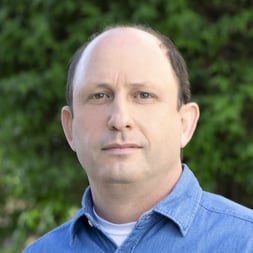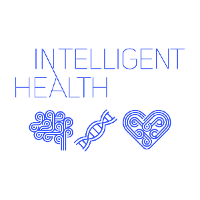We sat down with Noam Shomron, Professor of Genomics at Tel Aviv University, to ask him his thoughts on the future of AI in healthcare.
Do you think the increased usage of Generative AI and LLMs will have a dramatic impact on the healthcare industry and, if so, how?
Yes, the increased usage of Generative AI and LLMs will dramatically impact the healthcare industry. These technologies will enhance clinical decision support by synthesising vast medical data for more accurate diagnoses and optimised treatment plans. In medical imaging, LLMs can analyse scans with high accuracy, aiding in early detection of conditions. AI will also expedite drug discovery by predicting molecular structures and optimising drug design, potentially accelerating new therapy development. Personalised medicine will benefit from AI's ability to analyse diverse data sets, tailoring treatments based on individual genetics and responses. AI can streamline healthcare operations through automation and improve patient engagement with personalised health advice and education.
If you could solve any global health problem in the world with AI, what would it be?
I would apply it to my field - Genomics - by eradication of genetic diseases. AI-powered DNA sequencing can detect disease-causing mutations early, allowing for preventive measures and personalised treatment plans tailored to an individual's genetic makeup, improving effectiveness and reducing side effects. AI can also enhance gene editing techniques like CRISPR to correct genetic mutations at their source, potentially curing genetic diseases. Additionally, AI can analyse genetic data at the population level to identify at-risk groups and implement targeted public health strategies, reducing the incidence of genetic diseases over time. This approach could significantly improve the quality of life for millions of people worldwide.
What do you think will be the biggest impact of AI and tech in the healthcare sector in the next 5 years?
Likely, the transformation of diagnostic and personalised medicine. In the field that I work on, Genomics, AI algorithms, trained on vast datasets, will enhance the accuracy and speed of diagnosing diseases, such as cancer, cardiovascular conditions, and neurological disorders, through advanced DNA and RNA analysis but combining medical records and imagine patterns.
What's your biggest fear around the application of AI/tech in the healthcare field?
The potential psychological and social impact of widespread early diagnosis. As AI becomes more adept at identifying genetic predispositions and early markers of diseases, individuals may find themselves living with the knowledge that they carry "ticking bombs" of genetic risks or early-stage conditions that may or may not develop into serious health issues. This could lead to heightened anxiety and stress, affecting mental health and quality of life. Furthermore, the burden of knowing one's genetic risks might influence life decisions, such as career choices, insurance policies, and personal relationships. There is also the potential for stigma and discrimination based on genetic information. The challenge will be to balance the benefits of early diagnosis with the need to provide adequate psychological support, ensure ethical handling of genetic data, and prevent misuse of information. Addressing these concerns will be crucial to harnessing the full potential of AI and technology in a way that promotes overall well-being and equitable healthcare.
Who do you admire most in the world of healthcare?
Fred Sanger is a pivotal figure in healthcare due to his development of DNA sequencing techniques, notably the "Sanger Method," which revolutionised genetics and laid the foundation for the Human Genome Project. He is one of the few to have received two Nobel Prizes in Chemistry, for his work on protein structure and DNA sequencing. Sanger's innovations have advanced genetic research, personalised medicine, diagnostics, and targeted therapies, impacting our understanding of genetic disorders, cancer, and infectious diseases. His legacy continues through the Sanger Institute, a leader in genomic research, and his contributions are fundamental to modern molecular biology and medicine. Additionally, he was a modest and kind person and his methods are taught worldwide, inspiring new generations of scientists and healthcare professionals.
Professor Noam Shomron is passionate about using basic science to advance better healthcare. Professor Shomron heads the Functional Genomic Team at the Faculty of Medical and Health Sciences at Tel Aviv University after training at MIT. He leads a multidisciplinary team of scientists that develops computational methods for parsing big data in the bio-medical field using Artificial Intelligence (AI). Shomron applied for over 30 patents and published over 200 peer-reviewed publications on multiple genomic fields, including medicine, agriculture, and business. Shomron also leads the Tel Aviv University Innovation Lab (TILabs) Team on Digital Medicine. He is the Editor of ‘Deep Sequencing Data Analysis’ book (Springer, Edition I 2013, and II 2021); Director of ‘Rare-Genomics’ Israel (NPO); Director of Djerassi Institute of Oncology; Academic Director of ‘ScienceAbroad’ (NPO); Co-founder of several Biotech and Digital Medicine companies: Variantyx, GotSho, IdentifAI, Everly Bio, among others.
Global AI events calendar
Intelligent Health
11-12 September 2024
Basel, Switzerland
World Summit AI
09-10 October 2024
Amsterdam, Netherlands
World AI Week
07-11 October 2024
Amsterdam, Netherlands
World Summit AI MENA
10-11 December 2024
Doha, Qatar
Share your content with the Intelligent Health community
Got some interesting content you want to share with our community of AI and health Brains? You can send us anything from a published piece you have written online, white paper, article or interview. Submit it here



